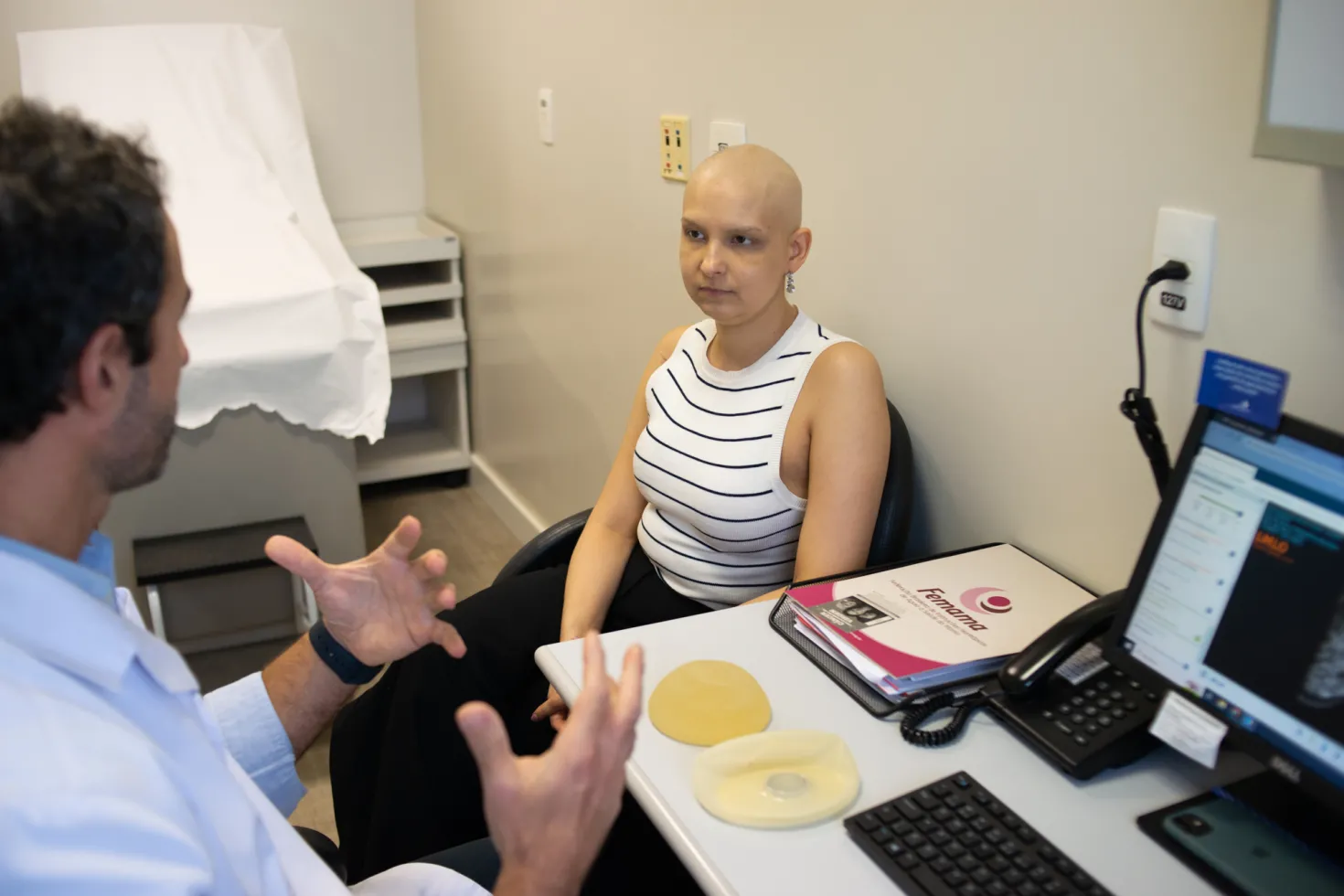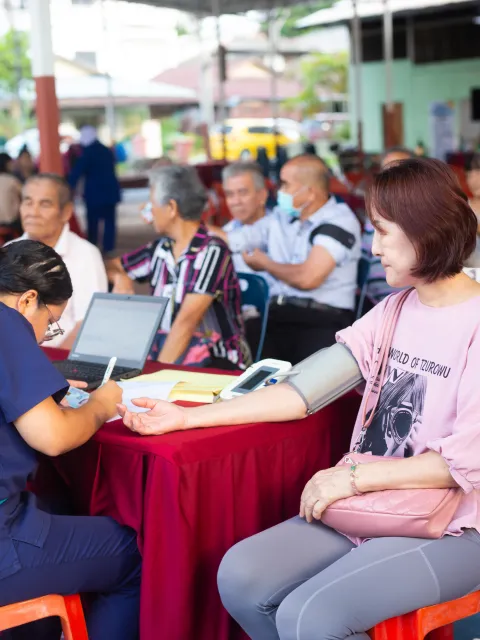New policy brief by UICC provides guidance for stronger national responses to breast cancer
A new policy brief published by UICC marking Breast Cancer Awareness Month urges governments to close the gaps in breast cancer through early detection, timely diagnosis, and equitable access, through key health system interventions.

HIGHLIGHTS
- Breast cancer causes 670,000 deaths annually, with low- and middle-income countries facing the greatest burden.
- A new policy brief by UICC outlines scalable, cost-effective actions aligned with WHO’s Global Breast Cancer Initiative.
- Recommendations include increasing public awareness, developing the health workforce, improving diagnosis, ensuring multidisciplinary treatment, and financial protection.
- Investing in the early diagnosis and comprehensive treatment of breast cancer has a reported return of up to USD 7.8 on each USD 1 invested.
Breast cancer now accounts for an estimated 2.3 million new cases and 670,000 deaths annually, and is projected to cause over 1.1 million deaths each year by 2050 without stronger action. The majority of these deaths will occur in low- and middle-income countries where health system challenges and weak infrastructure remain major barriers.
To address these challenges and marking Breast Cancer Awareness Month, UICC has released a new policy brief: Strengthening equitable access to breast cancer care through national health policies.
It is designed to support policymakers and advocates in expanding access to life-saving breast cancer services, particularly in low-resource settings. Actions are aimed at strengthening early detection through integrated health promotion, expanding access to timely diagnosis as well as to comprehensive treatment and supportive services.
“Breast cancer is not just a health challenge, it’s a test of how we design systems that work for women. This brief brings together decades of evidence to help governments build cost-effective, sustainable breast cancer services that reach all communities.”
— Kirstie Graham, Director of Capacity Building, UICC
The brief highlights multiple barriers that contribute to late diagnosis and poor outcomes, including limited public awareness, cultural norms, workforce shortages, inadequate infrastructure, and high out-of-pocket costs. It stresses that these challenges are often compounded in rural or underserved areas, where access to quality care remains particularly low.
To address these gaps, UICC recommends the following actions to improve outcomes and quality of life for people with breast cancer:
- Improve patient navigation to reduce diagnostic delays, increase access in rural and underserved areas, and improve treatment adherence and follow-up care.
- Establish robust population-based cancer registries to monitor service coverage, identify equity gaps, and guide evidence-based improvement.
- Train health care workers at the primary care level in clinical breast examination and referral protocols; train and retain oncology specialists.
- Ensure greater financial protection by including essential breast cancer services in universal health benefit packages (UHC).
The policy recommendations support national implementation of the World Health Organization’s Global Breast Cancer Initiative (GBCI), focusing on cost-effective, scalable interventions.
Investing in the early diagnosis and comprehensive treatment of breast cancer has significant economic as well as public health benefits with a reported return of up to USD 7.8 on each USD 1 invested. The impact is even greater when these interventions are integrated into broader health strategies, particularly those targeting maternal health and noncommunicable diseases.
The policy brief also outlines recommendations to:
-
Include breast cancer in national cancer control plans
-
Embed early detection in primary care, and ensure timely diagnosis and referral
-
Include comprehensive treatment and care services in universal health benefit packages
-
Engage civil society and communities to shape and deliver services
“Even in low-resource settings, investing in timely diagnosis and streamlined care pathways for breast cancer can dramatically improve outcomes. With the tools already at our disposal, countries can build strategies that are not only effective, but equitable and sustainable within national health systems.”
— Ulrika Årehed Kågström, President of UICC
The brief was developed in collaboration with the WHO GBCI Technical Working Group and well as global breast cancer experts and advocates, with the support UICC's Breast Cancer programme partners.
Last update
Wednesday 29 October 2025
